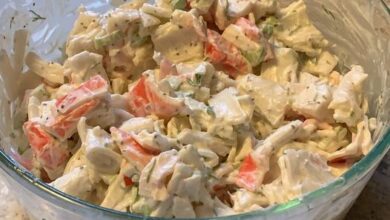How I Lost Weight with the Egg Diet – My Experience

The world of dieting can feel overwhelming, with countless plans promising quick results. For years, I struggled with what many call “yo-yo dieting”—losing weight, only to gain it back and then some. I found myself searching for something different: a straightforward, effective, and manageable approach that wouldn’t leave me feeling deprived. That’s when I discovered the Egg Diet, which has gained popularity for its simplicity and the satisfaction it provides.
While diets are not a one-size-fits-all solution, many people have found success by making eggs a central part of their meals. As a high-protein, low-calorie staple, they offer a great foundation for a weight loss plan. In this article, I want to share my personal experience with the Egg Diet—how it worked for me, the obstacles I faced, and why I believe it’s a solid option if you’re looking to shed pounds and feel more energized.
What Is the Egg Diet?
At its core, the Egg Diet focuses on boosting your protein intake through eggs while cutting back on carbohydrates and overall calories. Eggs are a nutritional powerhouse; they are packed with essential vitamins, healthy fats, and high-quality protein. This combination helps you feel full for longer periods, which can significantly reduce the temptation to snack between meals. The protein in eggs also helps to stabilize blood sugar levels, preventing those sharp highs and lows that can lead to cravings.
This diet typically involves eating eggs at most meals, but it’s not just about eggs. It’s about pairing them with non-starchy vegetables like spinach and broccoli, lean proteins like chicken or fish, and healthy fats from sources like avocado or nuts. The goal is to build a nutrient-dense eating plan around a simple, satisfying food.
My Personal Journey with the Egg Diet
After years of trying strict, complicated meal plans that were difficult to maintain, I was looking for something more sustainable. I was already in the habit of eating eggs for breakfast, so building a diet around them felt natural and easy to adapt to. The simplicity of the plan was a major selling point for me.
My meal plan wasn’t overly rigid. I focused on creativity to prevent boredom. Here’s a look at how I generally structured my meals throughout the day:
- Breakfast: I often started the day with scrambled eggs mixed with sautéed spinach, mushrooms, and tomatoes. The warm, savory meal kept me feeling full and focused well into the afternoon.
- Lunch: A hard-boiled egg salad became a go-to. I would mash the eggs with a bit of avocado for a creamy texture and mix in chopped cucumber and bell peppers for a refreshing crunch.
- Dinner: This was a great chance to get creative. I made different omelets filled with various vegetables, cheese, and even some lean meat. Sometimes, I would bake eggs with salsa or top them with herbs and spices for a new flavor.
- Snacks: When I needed a little something extra, I would have deviled eggs or savory egg muffins made with vegetables like zucchini and carrots. These were a perfect, protein-packed way to avoid reaching for junk food.
Beyond the egg-based meals, I made sure to stay well-hydrated by drinking plenty of water throughout the day. I also incorporated a wide variety of non-starchy vegetables, herbs, and spices to add flavor and essential nutrients to my diet.
Noticeable Results and Benefits
Within just a few weeks of starting the Egg Diet, I noticed significant and encouraging changes in my body and energy levels.
- Weight Loss: I dropped eight pounds without feeling like I was starving myself or counting every single calorie. The pounds came off steadily, which felt much more sustainable than the rapid, unsustainable drops I had experienced before.
- Increased Energy: The protein-rich eggs provided a steady source of fuel for my body. I no longer experienced the afternoon slumps that often left me feeling tired and reaching for a sugary pick-me-up.
- Improved Digestion: I noticed that my digestive issues were significantly reduced. Cutting back on processed carbohydrates and sugar in favor of whole foods and fiber-rich vegetables made a noticeable difference.
- Satiety: This was one of the biggest benefits. The high protein content of the eggs kept hunger pangs at bay, even on my busiest days. I felt satisfied after my meals, which made it easier to stick to the plan.
While the diet was effective, it’s important to mention that I made sure to maintain a balanced approach. I supplemented with salads, nuts, and fruits to ensure I was getting a wide range of nutrients, as too much reliance on one food can lead to nutrient imbalances.
The Challenges I Faced and How I Overcame Them
The Egg Diet was not without its hurdles. Like any dietary change, it required discipline and planning.
- Monotony: Eating eggs on a daily basis could get monotonous. I combated this by experimenting with different cooking methods (scrambled, boiled, baked, poached) and exploring new recipes. Adding different spices and sauces, like salsa or hot sauce, also helped to keep things interesting.
- Nutritional Balance: While eggs are nutritious, they don’t provide everything your body needs. I made a conscious effort to include a variety of leafy greens, colorful vegetables, and other whole foods to ensure I was getting enough fiber and essential micronutrients.
- Social Pressure: Explaining my diet to friends and family, especially when eating out, was sometimes awkward. To handle this, I would simply explain that I was following a specific plan for a short time and would look for menu options that fit my needs, like salads with grilled chicken or fish.
Tips for Success
If you’re considering trying a similar approach, here are some tips based on my experience:
- Variety is Key: Don’t get stuck in a rut. Experiment with different egg-based dishes and pair them with various healthy sides.
- Watch Your Portions: Even with healthy foods, portion sizes matter. Aim for two to three eggs per meal to maintain calorie control and avoid overeating.
- Supplement with Nutrients: Make a point to add a wide range of other foods to your diet. Incorporate leafy greens for iron and fiber, citrus fruits for Vitamin C, and legumes for essential minerals.
- Stay Hydrated: Drinking plenty of water is crucial for supporting your metabolism, aiding digestion, and helping you feel full.
- Listen to Your Body: Pay attention to how you feel. If you notice a lack of energy or any other adverse effects, it might be a sign to adjust your plan or consult a professional.
Final Thoughts
The Egg Diet isn’t a magic solution, but its flexibility and nutritional benefits make it a great option for those seeking a sustainable way to kickstart their weight loss journey. By focusing on protein-packed meals and minimizing processed carbs, I was able to achieve results that boosted my confidence and energy levels. It helped me learn about healthy eating habits and what works for my body.
Remember: moderation and balance are crucial. Pair your eggs with colorful vegetables and healthy fats, listen to your body, and enjoy the process. You might discover a new favorite way to eat eggs along the way!




